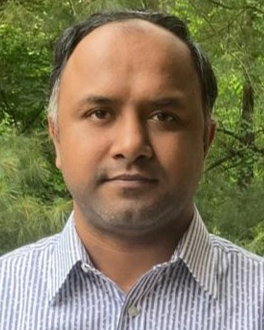
Arun Kumar Soma, PhD, was previously a postdoctoral fellow in the Department of Physics, a member of the Drexel Postdoctoral Association and a life member of the Indian Physics Association.
How did you previously reach your position as a postdoc?
Most of my high school and bachelor's education was done in the southern part of India. To pursue my master's in physics, I moved to the northern part of India and attended Banaras Hindu University. After joining there, I established my love of physics and I wanted to pursue a PhD in physics. However, I struggled with figuring out which topics of physics would suit me best. At one point during my time as a student, I learned about the idea of dark matter from a symposium. Simultaneously, some of my coursework focused on neutrinos and experimental physics, which I found challenging to understand. That motivated me to take up studying experimental physics, dark matter and neutrino physics.
I jumped into a collaborative PhD in dark matter physics that allowed me to travel to Taiwan and China. Most of my work dealt with very deep, underground experiments or nuclear power plants with artificial neutrinos and my work took roughly around six years to complete.
From 2013 onwards, I’ve been continuing my work on dark matter and neutrinos, specifically with Xenon detectors, and I’ve moved from the University of Alabama to Drexel University to create a better type of detector and help out with my specific expertise in experimental physics alongside engineers and technicians.
What research question were you trying to answer?
One of our research questions that we were pursuing involves something called neutrinoless double-beta decay. We know that the nucleus consists of neutrons and protons at a given instant of time. Two neutrons can simultaneously decay into protons plus electrons plus neutrinos or no neutrinos. We want to know the properties of having no neutrino interactions.
Another research question involves the Xenon detectors mentioned earlier. To measure neutrinos, we try to study the kinematics of those electrons and then recorded that into data. After processing the data, we construct a spectrum and from that spectrum we conduct physics analysis. To construct the energy of a spectrum, the system has to undergo some kind of interaction, so it releases some charge or light. To measure this data we use silicon photomultipliers. So, the question can be broken down into two parts: how do you see light in liquid Xenon and how effectively you can see it.
How was your research applicable to society?
For this question, I would like to use an example. Whenever we want to use the internet, you have to go through the World Wide Web. Originally, this was used to communicate our data with fellow collaborators because there were so many people involved. Later on, it was donated to humankind so everyone else could use it. The scientific field in general needed a tool to communicate research data. [The Xenon detectors] came out of that requirement.
The detectors that were designed are slowly finding applications in medical fields. For example, our research is used in cancer treatments that use radioactive sources, medical imaging using the silicon photomultipliers that are being developed. This research can help in designing new or modifying existing detectors.
Finally, what advice would you give to someone that is considering, or is new to, your career path?
There will be a lot of personal and professional challenges that come from being a physicist. It’s only your interest and motivation that will drive you to success and to have a balanced life. If you are generally motivated to know the unknown, then this is the field for you to be. If you are not motivated, then it will become tough after you begin your journey down this path. However, there’s a lot of potential to learn with this type of PhD because your work will involve developing detectors, which have many applications in society.
You will need to have integration tools that can help you communicate with various systems. There’s also always a large amount of data showing up, which you will need to be prepared to properly store and save. And you will have opportunities for data processing and data analysis and learning the statistical tools that come along with that type of work, so you will be developing a lot of skills there. Even if you are not genuinely motivated to become an experimental physicist, your skill set will always find applications in the industry.
One aspect of this path is that your studies are being performed as international collaborations. You will always have interactions with global customs and traditions. While you will find friends from all over the world, it is important to get yourself acquainted with different work ethics. You’ll have to face issues regarding time zones, since not everyone you will work with will be working in the United States. In the end, you will be building up your skills as a team member and a leader, which are both really good skills to have in any field you go into.